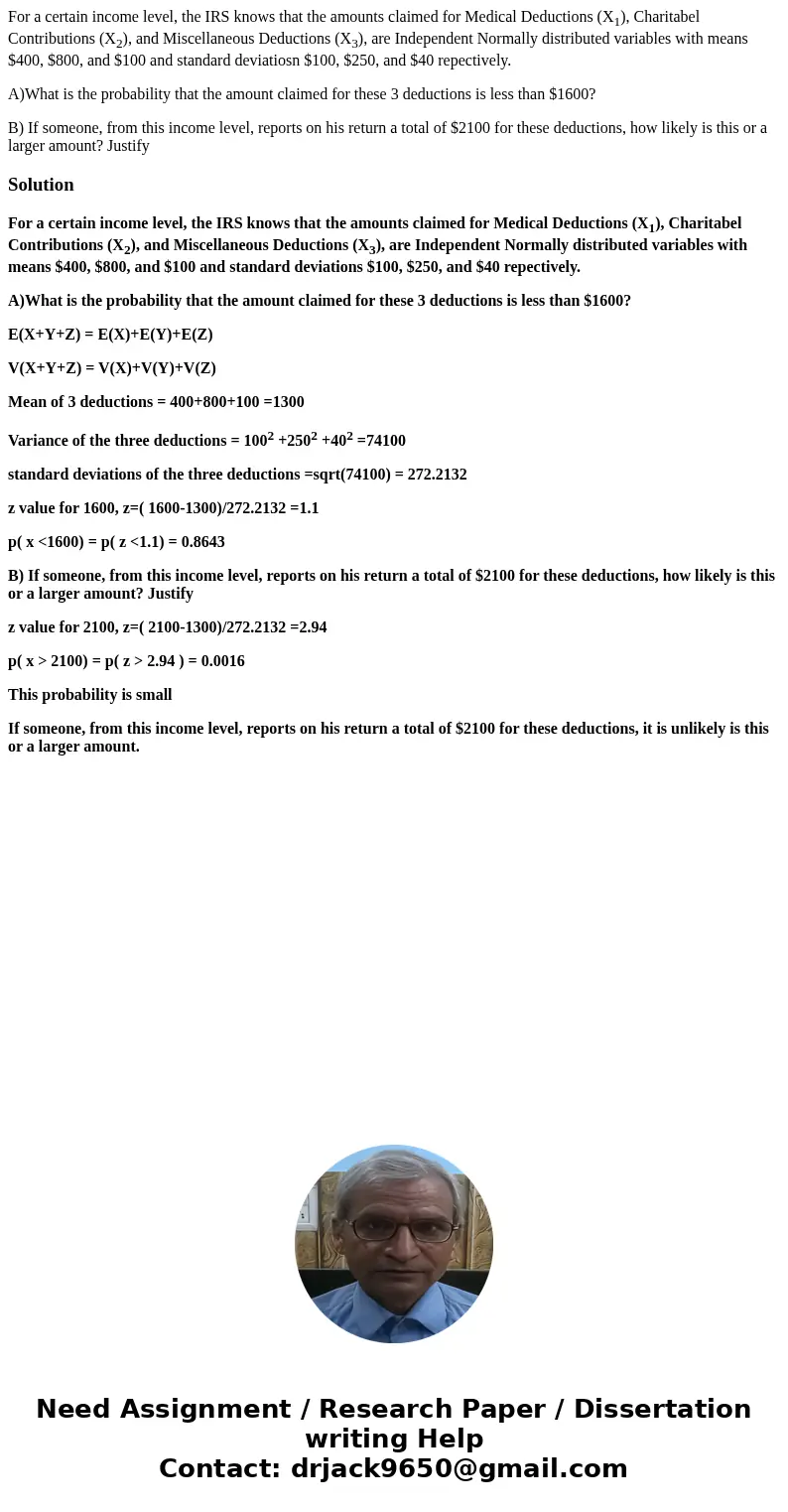For a certain income level the IRS knows that the amounts cl
For a certain income level, the IRS knows that the amounts claimed for Medical Deductions (X1), Charitabel Contributions (X2), and Miscellaneous Deductions (X3), are Independent Normally distributed variables with means $400, $800, and $100 and standard deviatiosn $100, $250, and $40 repectively.
A)What is the probability that the amount claimed for these 3 deductions is less than $1600?
B) If someone, from this income level, reports on his return a total of $2100 for these deductions, how likely is this or a larger amount? Justify
Solution
For a certain income level, the IRS knows that the amounts claimed for Medical Deductions (X1), Charitabel Contributions (X2), and Miscellaneous Deductions (X3), are Independent Normally distributed variables with means $400, $800, and $100 and standard deviations $100, $250, and $40 repectively.
A)What is the probability that the amount claimed for these 3 deductions is less than $1600?
E(X+Y+Z) = E(X)+E(Y)+E(Z)
V(X+Y+Z) = V(X)+V(Y)+V(Z)
Mean of 3 deductions = 400+800+100 =1300
Variance of the three deductions = 1002 +2502 +402 =74100
standard deviations of the three deductions =sqrt(74100) = 272.2132
z value for 1600, z=( 1600-1300)/272.2132 =1.1
p( x <1600) = p( z <1.1) = 0.8643
B) If someone, from this income level, reports on his return a total of $2100 for these deductions, how likely is this or a larger amount? Justify
z value for 2100, z=( 2100-1300)/272.2132 =2.94
p( x > 2100) = p( z > 2.94 ) = 0.0016
This probability is small
If someone, from this income level, reports on his return a total of $2100 for these deductions, it is unlikely is this or a larger amount.

 Homework Sourse
Homework Sourse